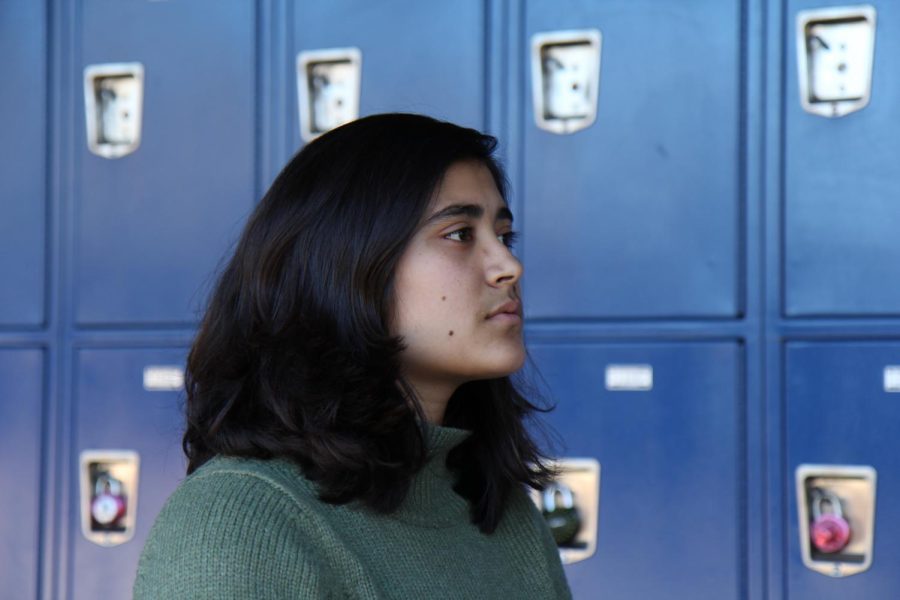Trisha Sengupta’s battle against lymphoma
November 9, 2018
She was thirteen when she first saw her life expectancy as a percentage on an illuminated screen: 85 percent chance of survival after five years. She felt caged. Numb. Suffocated. It hit her then: she could die.
Just days earlier, junior Trisha Sengupta and her family had been celebrating Thanksgiving in the tranquility of Lake Tahoe. Now, back at home, they anxiously awaited a phone call from the hospital.
Hours later, the doctor called, bringing news that would change Sengupta’s life forever: she had Stage IV metastatic Hodgkin’s lymphoma, a cancer of the lymphatic system, a network of vessels that helps defend against infections and circulates important bodily fluids. The cancer had already spread to other parts of her body.
“I completely shut down emotionally,” Sengupta said. “I don’t remember anything else [my parents said]. I just remember white noise. I was just thinking, ‘I need to get out of here, I can’t.’ I felt suffocated.”
The symptoms were seemingly negligible, yet undoubtedly noticeable, especially in the appearance of her lymph nodes, small glands in one’s body that comprise the immune system. A couple months prior to her diagnosis, Sengupta had begun to notice swelling of the lymph nodes around her neck, throat and collarbones, which doctors had dismissed as intimations of a common cold. However, when her lymph nodes remained swollen for more than 5 months, and Sengupta began to feel fatigue, her mother suggested that they go see an otolaryngologist, a specialist in head and neck structures. The doctor recommended that Sengupta get a lymph node biopsy, a test in which a lymph node or a piece of a lymph node is removed to be observed under a microscope. The test confirmed the final diagnosis: Stage IV Hodgkin’s lymphoma.
“It was as if the ground beneath me fell through,” said Shubhra Sarkar, Sengupta’s mother. “I was in utter shock. I didn’t know what to do. I wondered, ‘What happened? Why did this happen?’ I felt responsible to a certain extent. I knew I wasn’t, but I thought, ‘Was there something I should have been watching out for? Why Trisha? What went wrong?’”
Sengupta’s treatment plan included six rounds of one-month-long high-dosage chemotherapy. For Sengupta, the side effects of chemotherapy extended far beyond discernible physical changes, such as hair loss or weight fluctuations; they influenced her self-image and psychological well-being as well.
“Even now, I don’t feel like myself. Who I was before [I was diagnosed] was me, and who I am now is just a body that I’m trapped in,” Sengupta said. “It’s scary to wake up and see your hair in clumps on the pillow. I felt like I looked sicker when I didn’t have hair. I gained a lot of weight, and I still have stretch marks everywhere. Everyone said that they looked cool, like tiger stripes, but to me, my stretch marks were just another reminder of how sick I was.”
While those with cancer usually fear the possibility of looming death, Sengupta was more frightened by the prospect of missing out on life’s opportunities and experiences. Sengupta never doubted the expertise of her doctors or their proposed treatment plans, yet she was scared of the impact that chemotherapy would have on her.
During this emotionally challenging time, Sengupta’s family and friends were her strongest supporters. Prior to her diagnosis, she had always been rather independent, as her parents directed most of their attention toward supporting her older brother, who has physical disabilities. After her diagnosis, there was a noticeable shift in the family dynamic. Sengupta began to require more attention and assistance from her parents in regards to not only her physical health, but also her emotional wellness.
“She’s gone through so much that other people should never have to go through, so I think I really admire how determined she was and how strong she was to get through that,” said junior Maanvi Thawani, one of Sengupta’s closest friends.
From witnessing Sengupta fight her battle with cancer, her family observed her relentless resilience: they recognized that she had something in her that wanted to survive, that wanted to live, and so she did. On April 30, 2016, doctors declared Sengupta had no evidence of the disease in her body; she had fought her battle against cancer with incredible courage and won.
“You have support,” Sengupta said. “You have people who you can reach out to, whether it be your friends, family or support groups. Never be afraid to ask for help. Just live each day as it comes. Keep going.”



































































